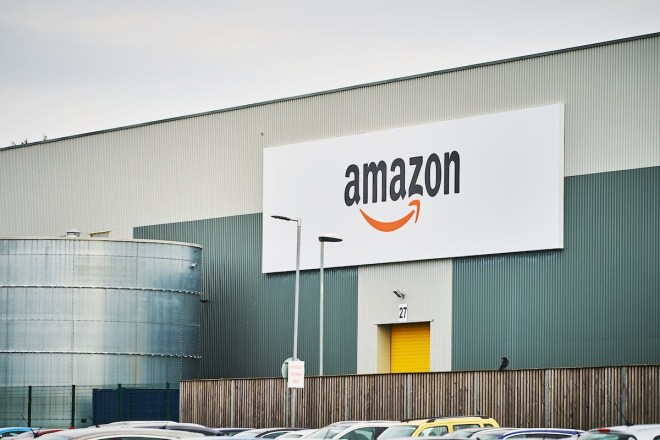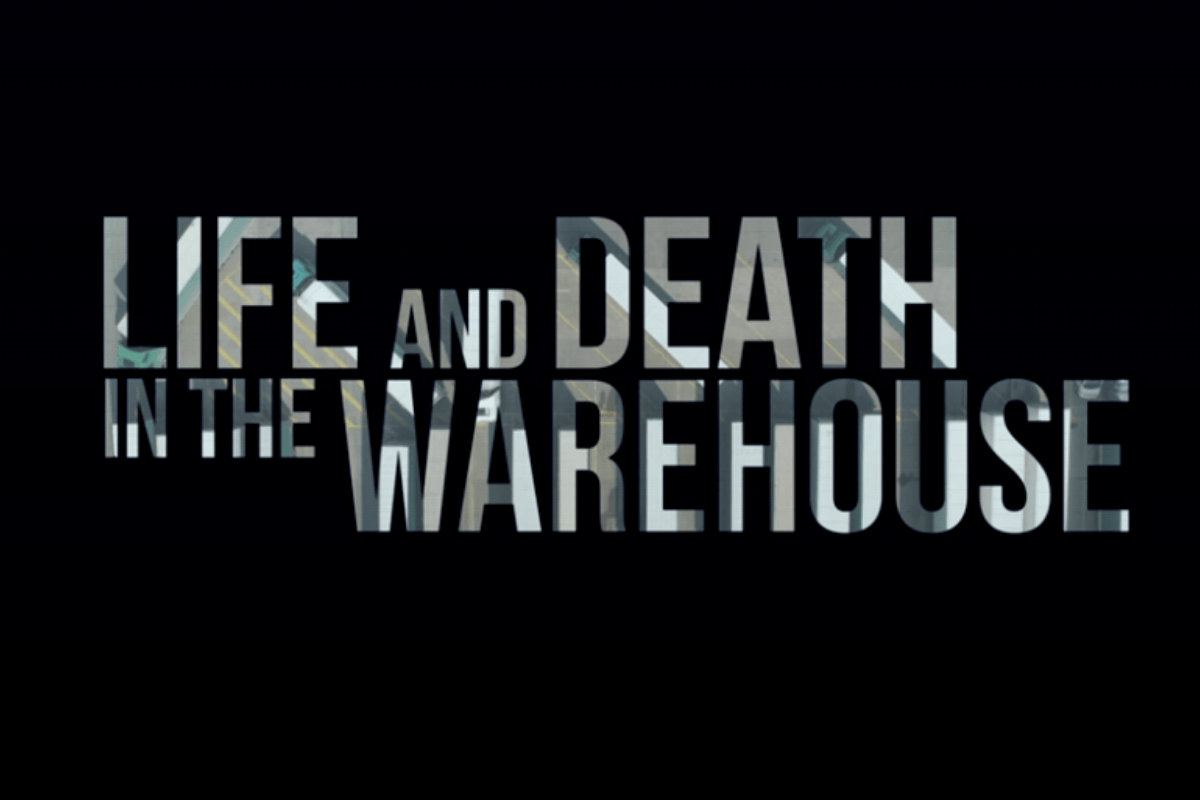A recent BBC drama explores the brutal conditions faced by warehouse workers – a product of the capitalist system, built on exploitation and profit. In real life, however, these workers are getting organised and fighting back.
BBC Three’s Life and Death in the Warehouse is a damning portrayal of the lives of workers in the distribution industry.
Whilst not naming any specific company, the film seeks to paint a picture of countless real-life reports coming from many warehouses – an intention made clear in an opening text statement.
WARNING: THIS REVIEW CONTAINS SPOILERS
Cracking the whip
The film takes place at a distribution centre of an unnamed online retailer – although it is clear that Amazon warehouses are the inspiration.
The story revolves around two childhood friends, Alys and Megan, who bump into each other one morning at the start of their shift. Alys, a ‘picker’, is a year-long veteran of the warehouse floor, whilst Megan is a new trainee manager.
Megan is introduced to the other managers in a secluded briefing room, who go to lengths to convince her that she is ‘special’; better than the pickers that she is to supervise. She is made to watch an induction video showing what ‘warning signs’ could indicate workers are unionising.
From the start, we are shown the bosses’ callous attitude towards the warehouse workers. Megan is unsettled to find out that her friend Alys is on her team, and one of her lowest rated ‘pickers’.
Megan is then pressured by upper management to raise Alys’ ‘pick-rate’ – the number of items she picks and places onto a trolley within a given period of time.
The dynamic between the friends is complicated when Alys tells Megan that she is pregnant, and has been told by her doctor to not carry out strenuous physical tasks.
At first, Megan is sympathetic, and tries to have Alys reassigned to a less physically demanding role, only to be rebuffed by upper management. But as Megan comes under increasing pressure from above – to the point where she is threatened with losing her own job unless Alys’s pick-rate improves – she eventually falls into line.
Reign of terror
 The film is good at bringing to life the bosses’ reign of terror in warehouses across Britain today.
The film is good at bringing to life the bosses’ reign of terror in warehouses across Britain today.
Every moment of the workers’ shift is monitored in real-time, including time spent on toilet breaks, or even exchanging a few words with other workers. All the while workers are constantly instructed over the tannoy to remain ‘customer focused’, which in reality means working flat-out in the interest of the bosses.
The film also highlights the casualisation of workers with the use of zero-hour contracts, which are the norm in the industry.
A majority of precarious agency workers are shown in the film, alongside a handful of permanent staff. Any who do not achieve the required pick rate are simply never called back to work, whilst the prospect of a secure contract is dangled in front of those who work the fastest.
Not only does this help maximise profits, but it also breaks up and atomises workers – a divide-and-rule tactic so often used by the bosses.
Alys, who is unable to work harder as she enters later stages of pregnancy, is called in for a disciplinary hearing. She is subsequently threatened with losing her job – and with it her maternity leave – if she does not raise her pick rate. Miserably, Alys goes back to work, with tragic results.
Getting organised
 This is not a mere dramatisation, but a reality faced by tens of thousands of distribution workers daily. The past years have seen countless horror stories coming from warehouses.
This is not a mere dramatisation, but a reality faced by tens of thousands of distribution workers daily. The past years have seen countless horror stories coming from warehouses.
Amazon workers have reported pregnant women standing for the entire duration of their 10-hour shifts, with ambulance call-outs rising to 600 cases in three years. And in 2014, a woman gave birth in the toilet of a Sports Direct warehouse, as she was too afraid to take time off and miss a shift.
Importantly, however, warehouse workers are getting organised and fighting back – despite the bosses best attempts to prevent employees from unionising.
Recently, for example, the JFK8 fulfilment centre in Staten Island, New York, became the first Amazon facility in the USA to be officially unionised, thanks to the incredible organising efforts of grassroots activists.
This provides inspiration for workers at Amazon and other similar companies across the world, showing the way forward in the fight against the barbarism and exploitation of capitalism.
Logic of capitalism
The film ends with a few snappy facts and figures about the growth in online shopping. These aim to have us question our own role as ‘consumers’ in the warehouse horror-show we have just witnessed. But this completely misses the point.
Up until this point, the film aptly portrays the suffering experienced by workers in the name of profit, and the bullying tactics employed by the bosses. However, this treatment is painted as the logical effect of a growing online shopping industry – for which we are all allegedly responsible!
Instead of shaming people for buying online, the finger should be pointed squarely at those responsible: the bosses and billionaire CEOs, who are more than happy to treat their workers as disposable if it earns them a quick buck; and the capitalist system as a whole, which due to the logic of competition forces the bosses to behave as ruthlessly as possible in extracting profits from their workers, or else face bankruptcy themselves.
There is no such thing as ‘ethical’ consumption under capitalism. Workers everywhere are exploited by the capitalist class. The whole rotten system must go.






